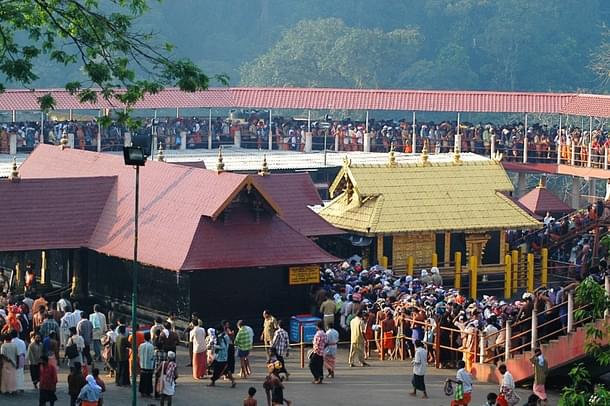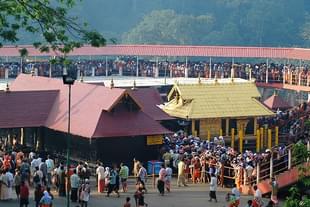Insta
Women’s Entry Into Sabarimala Temple: Can’t Change Your Stand Next Time, Supreme Court Tells Kerala
Swarajya Staff
Jul 19, 2018, 07:55 PM | Updated 07:55 PM IST
Save & read from anywhere!
Bookmark stories for easy access on any device or the Swarajya app.


The Supreme Court today (19 July) told the Kerala Government that its current stand arguing to permit women to enter the Ayyappa temple at Sabarimala is final and it wouldn’t be allowed to change its stance again.
An apex court bench headed by Chief Justice Dipak Misra told senior advocate Jaideep Gupta, appearing for Kerala, that the current position taken by the State government will be taken as the final one.
The hearing on allowing women entry into the Sabarimala Ayyappa temple continued for the second with Justice Misra observing that a condition that is impossible to follow is untenable in law. The Chief Justice was questioning the argument of senior advocate Abhishek Manu Singhvi, who was arguing for the Travancore Devaswom Board which is opposing women’s entry, that the practice was based on mensuration that is spread across culture. “...The basis of the Ayyappa Temple practice at Sabarimala is related to the celibate form of the Deity who is a Naishtika Brahmachari,” Singhi argued.
When Justice Rohinton Nariman, part of the bench hearing the case, asked about women stopping menstruating at the age of 45, Singhvi said that the principle behind the practice and not the age is the issue. He agreed to Justice Nariman’s observation that the notice preventing women’s entry into the temple could have been worded that way.
Singhvi told the court that there were thousands of other Ayyappa temples across the country where there were no such restricts but the Chief Justice intervened to say people flocked to Sabarimala because they believed in the deity. “If they (people, especially women) believe in the deity at Sabarimala, they must respect the traditions of the temple and observe its practices,” he said.
Amicus curiae Rajesh Ramachandran told the court that it could draw upon Article 17 to allow women’s entry into the temple since it concerned “pollution”. Hearings in the case will continue on 24 July.





